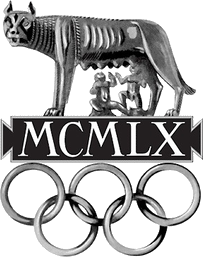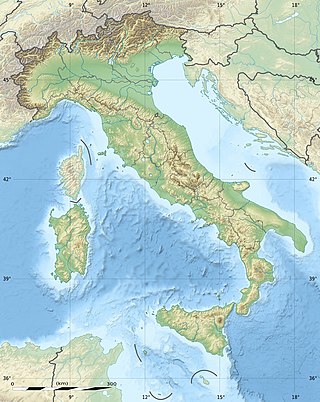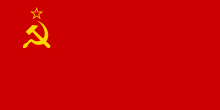
The 1960 Summer Olympics, officially known as the Games of the XVII Olympiad and commonly known as Rome 1960, were an international multi-sport event held from 25 August to 11 September 1960 in Rome, Italy. Rome had previously been awarded the administration of the 1908 Summer Olympics, but following the eruption of Mount Vesuvius in 1906, the city had no choice but to decline and pass the honour to London. The Soviet Union won the most gold and overall medals at the 1960 Games.

Kazakhstan competed at the 2004 Summer Olympics in Athens, Greece, from 13 to 29 August 2004. This was the nation's third appearance at the Summer Olympics in the post-Soviet era.

Poland competed at the 2004 Summer Olympics in Athens, Greece, from 13 to 29 August 2004. This was the nation's eighteenth appearance at the Summer Olympics, except the 1984 Summer Olympics in Los Angeles, because of the Soviet boycott. The Polish Olympic Committee sent a total of 194 athletes to the Games, 132 men and 62 women, to compete in 21 sports. Men's volleyball was the only team-based sport in which Poland had its representation in these Olympic Games. There was only a single competitor in women's taekwondo.

Estonia competed at the 2004 Summer Olympics in Athens, Greece, from 13 to 29 August 2004. This was the nation's ninth appearance at the Summer Olympics.

The Soviet Union (USSR) competed at the 1972 Summer Olympics in Munich, West Germany. 371 competitors, 298 men and 73 women, took part in 180 events in 22 sports.

The Soviet Union (USSR) competed at the 1976 Summer Olympics in the city of Montreal, Quebec, Canada. 410 competitors, 285 men and 125 women, took part in 189 events in 22 sports. As the country hosted the next Olympics in Moscow, a Soviet segment was performed at the closing ceremony.

Athletes from Belarus began their Olympic participation at the 1952 Summer Games in Helsinki, Finland, as part of the Soviet Union. After the Soviet Union disbanded in 1991, Belarus, along with four of the other fourteen former Soviet republics, competed in the 1992 Winter Olympics as the Unified Team. Later in 1992, Belarus joined eleven republics to compete as the Unified Team at the Summer Games in Barcelona, Spain. Two years later, Belarus competed for the first time as an independent nation in the 1994 Winter Olympics, held in Lillehammer, Norway.

The United States of America has sent many athletes to the celebration of the Olympic Games, starting with the first modern Olympics held in 1896. The United States has sent athletes to every Olympic Games with the exception of the 1980 Summer Olympics, during which it led a boycott in protest of the Soviet Union's invasion of Afghanistan. The United States Olympic & Paralympic Committee (USOPC) is the National Olympic Committee for the United States.

The Soviet Union (USSR) competed at the 1964 Summer Olympics in Tokyo, Japan. 317 competitors, 254 men and 63 women, took part in 154 events in 19 sports.

The Soviet Union (USSR) competed at the 1968 Summer Olympics in Mexico City. 312 competitors, 246 men and 66 women, took part in 164 events in 18 sports.

Finland competed at the 1920 Summer Olympics in Antwerp, Belgium for the first time as a fully independent state. It did compete at the previous Olympics, however, only as the Russian-dependent Grand Duchy of Finland. 63 competitors, 62 men and 1 woman, took part in 51 events in 9 sports.

Georgia competed at the 2012 Summer Olympics in London, from 27 July to 12 August 2012. This was a list of results of all athletes who qualified for the Olympics and were nominated by the Georgian National Olympic Committee. A total of 35 athletes, 29 men and 6 women, competed in 11 sports, tying the record for the most athletes with Beijing. Among the sports played by the athletes, Georgia marked its Olympic debut in tennis.
Hugo Miguel da Silva Passos, ComIH is an amateur Portuguese Greco-Roman wrestler, who competed in the men's lightweight category. He won four gold medals in his respective category at the Deaflympics, and set a historic milestone as the first legally deaf athlete to represent Portugal at the 2004 Summer Olympics. Despite having a hearing disability, Passos trained throughout his sporting career as a member of the wrestling team for Casa Pia Athletics Club with the assistance of his personal coach and 1996 Olympic wrestler David Maia.

Bahrain competed at the 2016 Summer Olympics in Rio de Janeiro, Brazil, from 5 to 21 August 2016. This nation marked its ninth consecutive appearance at the Summer Olympics.

The 2017 Summer Deaflympics, officially known as the 23rd Summer Deaflympics, is an international multi-sport event that took place in Samsun, Turkey from July 18 to July 30, 2017. 3,148 athletes from 97 countries competed in 18 sports with 21 disciplines. 86 records were broken with 54 being world records and 32 being Deaflympics records.

Czech Republic which was formerly a part of Czechoslovakia, first competed at the Deaflympics, as an independent nation in 1993. But in 1993, coincidentally Czechoslovakia competed in its last Deaflympic event. Prior to the Dissolution of Czechoslovakia in 1993, Czech athletes went on to compete at the Deaflympics from 1928 to 1993 for Czechoslovakia.
Water polo is a water sport which has been contested at the Summer Deaflympics on 11 occasions. Water polo was recognised as a sporting event at the Deaflympics for the first time in 1949 with only two nations competing in the event. Water polo was contested only for men in the Deaflympic history and raised question marks regarding the availability of the sport at the Deaflympics.

The 2019 Winter Deaflympics, officially known as the 19th Winter Deaflympics or XIX Winter Deaflympics, was the 19th edition of the Winter Deaflympics, and took place between the 12–21 December in Sondrio Province in Northern Italy. The opening ceremony was held in Sondrio on 12 December and curling competition began a day prior to the start of the Winter Deaflympics. Sporting events apart from curling commenced on 13 December.

Turkmenistan first competed at the Summer Deaflympics in 2001. The country also competed at the Summer Deaflympics in 2005, 2013 and 2017.














